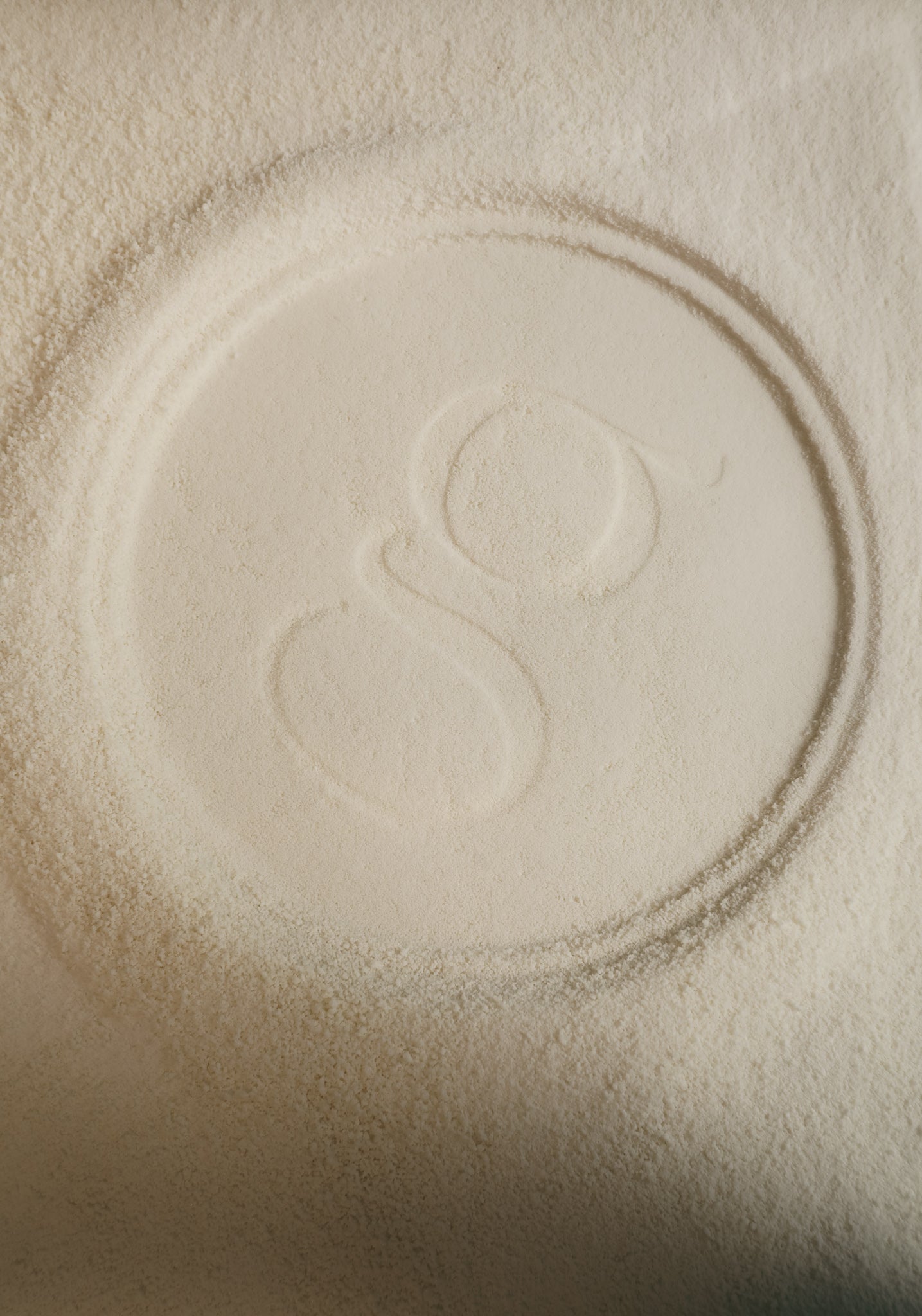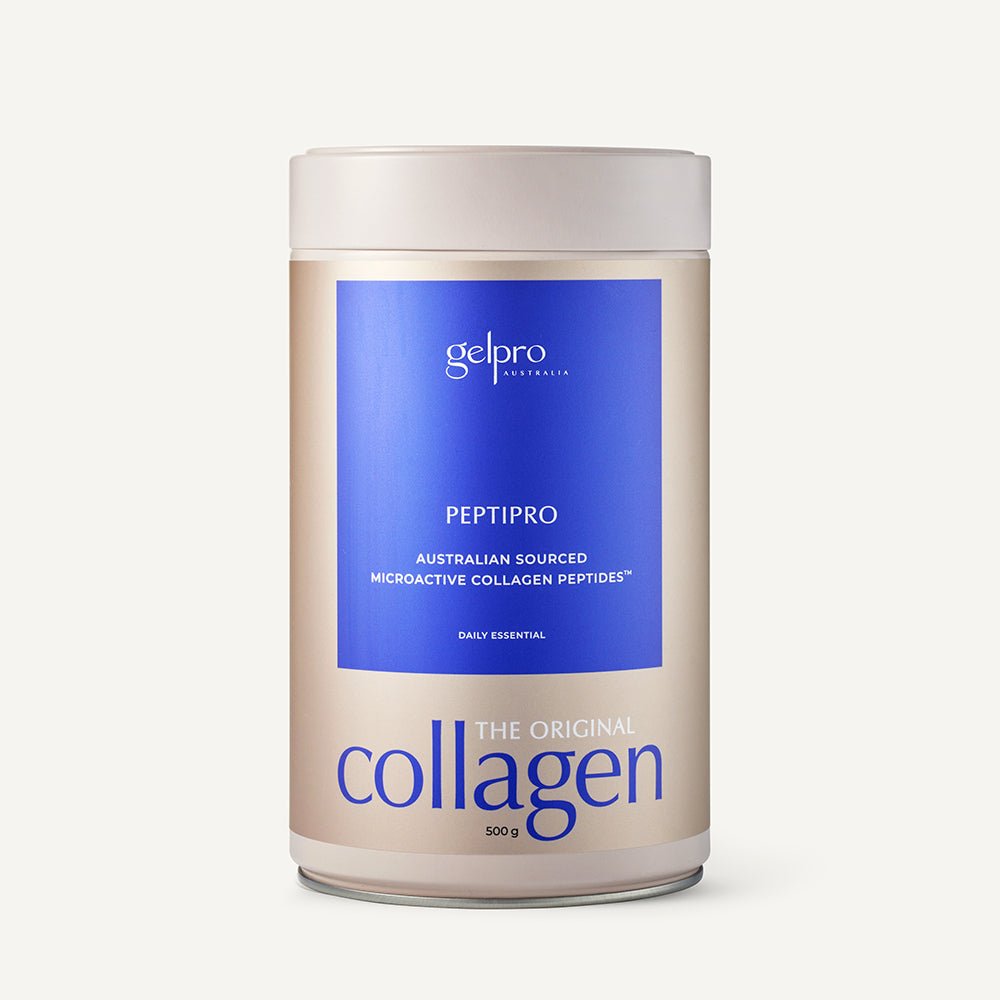If both collagen powder and gelatin are made from collagen, what’s the difference?
While hunting for the best collagen products on the market, you might wonder whether you should go for collagen peptides or gelatin.
The thing is, collagen powder and gelatin share the same amino acid portfolio and have similar benefits, yet they’re quite different in their uses and applications.
So which one should you opt for? Or should you go for both products? Let’s take a look at the main properties of collagen and gelatin, their benefits, differences in use.
What Is Collagen?
Collagen is the most abundant protein in our bodies, and it’s mostly found in skin, muscles, and tendons. It’s also a natural part of cartilages, bones and other tissues in both humans and animals.
There are three main types of collagen - Type I, Type II, and Type III - each with specific characteristics and properties. If you want to learn more about them, check out our article: 8 Reasons Why You Need Collagen Supplements
With age, collagen levels in our bodies decrease, which results in losing skin elasticity, the appearance of wrinkles, joint issues, and other not so attractive health conditions. That’s why to sustain collagen production, your system needs to get some regularly.
While our ancestors used to consume collagen from slow cooking cuts of meat with bones and tendons, we, on the other hand, tend to throw away those nutrient-dense parts. And let’s be honest, the time required to slow cook (18-24hrs) to release collagen is not time any of us have.
That’s why technlogy advanced and came up with different ways of cooking collagen to reap its benefits in a more appealing way. Cooking collagen resulted in extracting gelatin, and processing it more intensively leads to the creation of collagen peptides.
What Are Collagen Peptides?
Collagen hydrolysate, also known as collagen peptides, hydrolyzed collagen, or collagen powder, is collagen that has been broken down into smaller amino acid bonds during the process of hydrolyzation.
This collagen product dissolves in both hot and cold water and is easy to digest for your body thanks to smaller protein molecules.
Depending on your diet preferences, you can find both bovine and marine collagen on the market. Just make sure you’re paying close attention to the quality of the products you purchase.
We make our Peptipro Collagen Hydrate exclusively from Australian and NZ bovine hides. And our Advanced Marine Collagen is made using wild-caught cod from pristine Arctic and North Atlantic waters.
What Is Gelatin?
If you cook collagen long enough to break down amino acids into smaller parts, you’ll get gelatin. After that, it can be turned into powder or sheets. Bones, skin, and connective tissues of cows, pigs, chickens, and fish are the most common gelatin sources.
Gelatin is known for its gelling features and is perfect for cooking soups, stews, stocks, desserts, and gummies. If you want to use it in the kitchen, all you need to do is dissolve gelatin in hot water, add it to the desired dish, and once cooled down, it’ll jellify.
If you follow a paleo diet, you have probably already tried simmering bones to make your own gelatin, or at least thought about doing it. However, if the idea of cooking bones and skin for 24-48 hours doesn’t sound exciting, you can easily grab Peptipro Australian Beef Gelatin. And if you’re worried about a weird bone taste, we got you covered. Gelpro’s premium gelatin is unflavoured and sourced from only Australian beef cattle hides and skin.
Collagen Hydrolysate vs Gelatin: What’s the Difference?
As we have already established, hydrolyzed collagen and gelatin aren’t the same things. Having the same amino acid profiles, these two products mostly differ in their chemical structures and culinary use.
|
Collagen Peptides |
Gelatin |
|
|
Amino Acid Profile |
Same with smaller protein molecules |
Same with a bit larger protein molecules |
|
Process |
Fully-hydrolyzed collagen |
Partially-hydrolyzed collagen |
|
Forms |
Powder, liquid, or capsules |
Powder or Granulated Sheet |
|
Solubility |
Dissolves in both hot and cold liquid |
Dissolves only in hot liquid |
|
Gelling Properties |
No |
Yes |
|
Benefits |
Promotes joint, bone, skin, and gut health |
Promotes joint, bone, skin, and gut health |
|
Uses |
Nutritional supplement |
Gelling agent in cooking |
Whether you should go for collagen powder or gelatin will mostly depend on how you plan on consuming your daily dose of collagen.
Hydrolyzed collagen is mostly used as a nutritional supplement, and many people find it a bit easier to digest. You can add it to your morning coffee, post-workout smoothie, or basically any other dish.
However, if you prefer adding collagen to foods that need structure, such as sauces, curries, cheesecakes, and soups, gelatin will be your number one friend.
While collagen peptides and gelatin aren’t interchangeable, you can use both of them to prepare tasty dishes and supply your body with collagen. Just make sure you don’t consume more collagen than the daily recommended amount.
Collagen Peptides vs Beef Gelatin: Benefits
Both collagen peptides powder and gelatin have great benefits for your health and help you nourish your body from within. Here are a few of them:
- Promote joint and bone health
- Support healthy skin
- Contribute to hair and nail growth
- Improve gut health
- Help recover after working out
“Collagen supplements are made from collagen that's fully broken down into peptides. Collagen supplementation has been shown to reduce the signs of ageing, such as wrinkles and dryness. Consuming hydrolyzed collagen increases collagen density in the skin, elasticity, and skin firmness. Collagen hydrolysates have also been shown to help improve joint pain in athletes suffering joint injuries.
Similar to collagen, gelatin can provide amino acids that improve the health of the skin. Since both collagen supplements and gelatin are made from the same proteins, the amino acid composition is similar. However, gelatin is more difficult to digest than collagen hydrolysate.”
Bryan Quoc Le, PhD, Food Scientist, Food Industry Consultant & Author of “150 Food Science Questions Answered”
Collagen Powder vs Gelatin: Best Ways to Use
If you prefer to consume your daily dose of collagen on the go, then feel free to add it to your morning smoothie bowl, coffee, tea, post-workout protein shake, pancakes, you name it.
Here’s an idea for a delicious Super Simple Pink Smoothie:
- 1 medium banana
- 1 scoop Advanced Marine Collagen
- 1 cup/ 250 ml almond milk
- 1/2 cup frozen raspberries
- 1 tablespoon cashew butter
Simply add all the ingredients to a blender and blitz. Enjoy!
However, if you’re feeling more creative and want to experiment cooking with gelatin, here’s a mouth-watering recipe by Henry Nankivell.
Rosewater Gummies
Ingredients:
- 3 tablespoons (45ml) gelatin powder
- 90ml water
- 1 tsp beetroot powder
- 425ml water
- 125g honey
- 6 tablespoons (90ml) rose water
Directions:
- Grease and line a 20 x 20 cm baking tin with parchment paper. Alternatively use silicon moulds.
- In a bowl, stir the gelatin into the 90ml water. Set aside.
- In a saucepan over medium heat, add the water and beetroot powder and bring to a gentle simmer.
- Add the honey and stir until the honey is completely dissolved.
- Remove the saucepan from the heat and stir in the rose water.
- Add the bloomed gelatin and stir until completely dissolved.
- Pour the mixture into the tin/ mould, and place into the fridge to set.
Gelatin vs Collagen: Which Is Better?
Now that you know everything about this wonderful protein it’s time to choose between collagen peptides and gelatin.
Both gelatin and collagen hydrolysate have almost the same nutritional value and health benefits. However, your choice will mostly depend on how you plan to use them.
If you’re looking for a daily use, then go for collagen powder. If you’re an avid lover of dishes that require thickening agents or like making desserts, then choose gelatin. And if you’re not sure of your goals yet, try using both and see what you like the most.
If you’re looking for high-quality collagen protein, feel free to check out the entire range of Gelpro protein products. And don’t hesitate to contact us if you have any questions or concerns.






